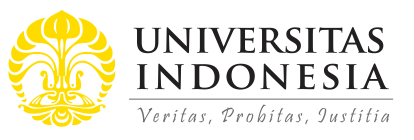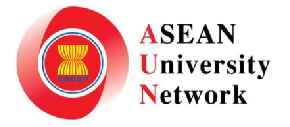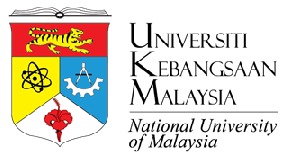
Abstract
This project focused on the introduction of liquid smoke and bio briquette manufacturing technology to small and medium enterprises (SMEs) located in Bohol Village, Gunungkidul, Indonesia through technology transfer, training, and mentoring. These SMEs are engaged in the food business with the main product jenang ketan, a traditional food from Gunungkidul, especially in Rongkop District, and very popular among communities around and outside Gunungkidul. The traditional preparation of jenang ketan produces several by-products in the form of waste, which is dominated by coconut shell biomass. The project’s technology transfer was carried out through the procurement of a series of pyrolysis reactors, distillation reactors, grinder machines, mixer machines, and briquette press machines for SMEs. Afterwards, the training was performed through teaching and practice of SMEs with a focus on the pyrolysis process, bio-briquette process, distillation, application of liquid smoke and bio-briquette, and marketing techniques. The activity was conducted within a period of one-year; continuous mentoring was carried out for the SMEs through consultation and direct field evaluation. The result of the project revealed an increase in the knowledge of SME personnel in the processing of coconut shells waste to produce liquid smoke and bio-briquette and the capability of SMEs to produce their own liquid smoke and briquette.
References
Awali, J., Ismail, I., Aryatama, O., Triana, Y., & Asih, W. (2018). Pelatihan daur ulang logam (alumunium) bagi masyarakat Karang Joang. Jurnal Pengabdian Kepada Masyarakat, 4(1), 1–10. https://doi.org/10.22146/jpkm.30313
Aziz, T., Indraman, M. F., & Alawiyah, U. (2011). Pemanfaatan tempurung kelapa dan tempurung sawit untuk pembuatan asap cair sebagai penghilang bau pada lateks dengan metode pirolisis. Teknik Kimia, 17(8), 41–48.
Billups, J. O., & Juliá, M. C. (2019). Technology transfer and integrated social development: International issues and possibilities for social work. The Journal of Sociology & Social Welfare, 23(1), 236–247. https://doi.org/10.4324/9780429438776-14
Bozeman, B. (2000). Technology transfer and public policy: A review of research and theory. Research Policy, 29(4–5), 627–655. https://doi.org/10.1016/S0048-7333(99)00093-1
Budi, E., Nasbey, H., Budi, S., Handoko, E., Suharmanto, P., Sinansari, R., & Sunaryo, S. (2012). Kajian pembentukan karbon aktif berbahan arang tempurung kelapa. Prosiding Seminar Nasional Fisika, 1(1), 62–66.
de Souza, J. L. S., da Guimarães, V. B. da S., Campos, A. D., & Lund, R. G. (2018). Antimicrobial potential of pyroligneous extracts—a systematic review and technological prospecting. Brazilian Journal of Microbiology, 49 (1), 128–139. https://doi.org/10.1016/j.bjm.2018.07.001
Enders, J., Boer, H. F., & Westerheijden, D. F. (Eds.). (2011). Reform of Higher Education in Europe. SensePublishers. https://doi.org/10.1007/978-94-6091-555-0
Faisol, A., Anggun, T., & Nurzeni, F. (2014). Pembuatan briket dari campuran limbah plastik LDPE, tempurung kelapa dan cangkang sawit. Teknik Kimia, 20(2), 45–54.
Fariadhie, J. (2009). Perbandingan briket tempurung kelapa dengan ampas tebu, jerami dan batu bara. Tatal Jurnal Teknik, 5(1), 1–8.
Hasanah, U., Setiaji, B., Triyono, T., & Anwar, C. (2012). The chemical composition and physical properties of the light and heavy tar resulted from coconut shell pyrolysis. The Journal of Pure and Applied Chemistry Research, 1(1), 26–32. https://doi.org/10.21776/ub.jpacr.2012.001.01.102
Husseinsyah, S., & Mostapha. M. (2011). The effect of filler content on properties of coconut shell filled polyester composites. Malaysian Polymer Journal, 6(1), 87–97.
Lingbeck, J. M., Cordero, P., O’Bryan, C. A., Johnson, M. G., Ricke, S. C., & Crandall, P. G. (2014). Functionality of liquid smoke as an all-natural antimicrobial in food preservation. Meat Science, 97(2), 197–206. https://doi.org/10.1016/j.meatsci.2014.02.003
Mahmud, Z., & Yulius, F. (2015). Prospek pengolahan hasil samping buah kelapa. Perspektif: Review Penelitian Tanaman Industri, 4(2), 55–63. http://dx.doi.org/10.21082/p.v4n2.2005.%25p
Mars, M. M., Burd, R. (2013). Impact over revenue: Toward a social entrepreneurship model for university technology transfer. Journal of Entrepreneurship & Organization Management, 2(1), 1–7. https://doi.org/10.4172/2169-026x.1000104
Milly, P. J., Toledo, R. T., & Ramakrishnan, S. (2006). Determination of minimum inhibitory concentrations of liquid smoke fractions. Journal of Food Science, 70(1), 12–17.
Montazeri, N., Oliveira, A. C. M., Himelbloom, B. H., Leigh, M. B., & Crapo, C. A. (2013). Chemical characterization of commercial liquid smoke products. Food Science & Nutrition, 1(1), 102–115. https://doi.org/10.1002/fsn3.9
Najib, A. (2021, July 21). 4,064 usaha mikro di Gunungkidul diusulkan peroleh bantuan produktif. iNewsYogya.id. https://yogya.inews.id/berita/4064-usaha-mikro-di-gunungkidul-diusulkan-peroleh-bantuan-produktif
Piachaud, D. (1979). The diffusion of medical techniques to less developed countries. International Journal of Health Services, 9(4), 629–643. https://doi.org/10.2190/QVK8-J638-W8V7-6F9J
Rasi, A. J. L., Seda, Y. P., & Anggraini, S. P. A. (2014). Potensi teknologi asap cair tempurung kelapa terhadap keamanan pangan. eUREKA: Jurnal Penelitian Teknik Sipil dan Teknik Kimia, 1(1), 1–10.
Rizal, W. A., Nisa’, K., Maryana, R., Prasetyo, D. J., Pratiwi D., Jatmiko, T. H., Ariani, D., & Suwanto, A. (2020). Chemical composition of liquid smoke from coconut shell waste produced by SME in Rongkop Gunungkidul. IOP Conference Series: Earth and Environmental Science, 462 012057. IOP Publishing. https://doi.org/10.1088/1755-1315/462/1/012057
Romer, P. M. (1994). The origins of endogenous growth. The Journal of Economic Perspectives, 8(1), 3–22.
Sa’diyah, K., Rohman, F., Harsanti, W., Nugraha, I., & Febrianto, N. A. (2018). Pyrolysis of coconut coir and shell as alternative energy source. Jurnal Bahan Alam Terbarukan, 7(2), 115–120. https://doi.org/10.15294/jbat.v7i2.11393
Schumpeter, J. A. (1949). The theory of economic development: An inquiry into profits, capital, credit, interest, and the business cycle. Harvard University Press.
Sihombing, N. L. N. (2018). Model pendampingan UKM di kota Tangerang Selatan. Prosiding Seminar Nasional Hasil Pengabdian Kepada Masyarakat, 1(1), 84–90.
Soares, J. M., da Silva, P. F., Puton, B. M. S., Brustolin, A. P., Cansian, R. L., Dallago, R. M., & Valduga, E. (2016). Antimicrobial and antioxidant activity of liquid smoke and its potential application to bacon. Innovative Food Science and Emerging Technologies, 38(A), 189–197. https://doi.org/10.1016/j.ifset.2016.10.007
Soldera, S., Sebastianutto, N., & Bortolomeazzi, R. (2008). Composition of phenolic compounds and antioxidant activity of commercial aqueous smoke flavorings. Journal of Agricultural and Food Chemistry, 56(8), 2727–2734. https://doi.org/10.1021/jf072117d
Sunarsih, S. (2020). Pembedayaan masyarakat melalui pemanfaatan komoditas ketela di Desa Giricahyo. Jurnal Pemberdayaan Masyarakat: Media Pemikiran dan Dakwah Pembangunan, 4(1), 193–230. https://doi.org/10.14421/jpm.2020.041-08
Suryani, R., Rizal, W. A., Pratiwi, D., & Prasetyo, D. J. (2020). Karakteristik dan aktivitas antibakteri asap cair dari biomassa kayu putih (Melaleuca leucadendra) dan kayu jati (Tectona grandis). Jurnal Teknologi Pertanian, 21(2), 106–117.
Swastawati, F. (2011). Studi kelayakan dan efisiensi usaha pengasapan ikan dengan asap cair limbah pertanian. Jurnal Dinamika Ekonomi Pembangunan. 1(1), 18–24.
van Loo, E. J., Babu, D., Crandall, P. G., & Ricke, S. C. (2012). Screening of commercial and pecan shell-extracted liquid smoke agents as natural antimicrobials against foodborne pathogen. Journal of Food Protection, 75(6), 1148–1152. https://doi.org/10.4315/0362-028X.JFP-11-543
Recommended Citation
Rizal, Wahyu Anggo; Suryani, Ria; Maryana, Roni; Prasetyo, Dwi Joko; Pratiwi, Diah; Ratnawati, Yuli Ary; Ariani, Dini; and Suwanto, Andri
(2022).
Coconut Shell Waste Treatment Technology for A Sustainable Waste Utilization: A Case Study of the SMEs in Bohol Village, Indonesia.
ASEAN Journal of Community Engagement, 6(2), 278-293.
Available at: https://doi.org/10.7454/ajce.v6i2.1182
Included in
Applied Mechanics Commons, Environmental Education Commons, Other Environmental Sciences Commons, Physical Chemistry Commons, Sustainability Commons







